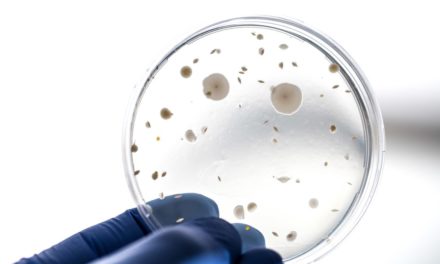TL;DR
-
Reflux drugs (PPIs like Nexium, Prilosec, Prevacid) reduce stomach acid.
-
Long-term use is linked to dementia, fractures, bacterial overgrowth, SIBO, IBS, kidney disease, and rebound acid problems.
-
Stomach acid is essential for digestion and microbial control; suppressing it disrupts the gut microbiome.
-
Safer, natural strategies exist for supporting digestion and reducing reflux without chronic acid suppression.
Heartburn and reflux are uncomfortable, and PPIs (proton pump inhibitors) are among the most commonly prescribed drugs to block stomach acid. long-term use can create much bigger problems.
The Hidden Dangers of PPI Use
Use of Proton Pump Inhibitors (PPIs — acid-suppressing drugs like Omeprazole/Prilosec, Esomeprazole/Nexium, Lansoprazole/Prevacid, Pantoprazole/Protonix, Rabeprazole/Aciphex, and Dexlansoprazole/Kapidex) has been linked to serious health risks, including:
-
Higher incidence of dementia【1】
-
Increased hip fracture risk in people over 50【2】
-
Bacterial overgrowth in the stomach and duodenum【3】
-
SIBO (small intestinal bacterial overgrowth) and IBS【4,5】
-
Chronic kidney disease with prolonged use【6】
-
Rebound hyperacidity — when you stop, acid production surges, often making symptoms worse than before【7】
How PPIs Set the Stage for IBS
-
Loss of Acid Defense: Stomach acid keeps bacteria in check. Suppression allows overgrowth in the stomach, duodenum, and small intestine.
-
Microbiome Disruption: Dysbiosis (altered microbial balance) is common in IBS patients, and PPI use contributes to this imbalance【24,28,31,35】.
-
Infection Risk: With lower acid, infections and post-infectious IBS become more likely【33】.
-
Chronic Inflammation: SIBO and dysbiosis trigger inflammation, which drives bloating, diarrhea, constipation, and pain【34】.
Beyond the Gut: Other Risks of Long-Term PPI Use
PPIs don’t just affect digestion:
-
Bone Health: Increased fracture risk due to poor mineral absorption.
-
Nutrient Deficiency: Reduced absorption of B12, magnesium, calcium, and iron.
-
Kidney Health: Long-term users are more likely to develop chronic kidney disease.
The Rebound Effect
Another major problem is what happens when you stop taking PPIs. Acid production often surges above baseline — a rebound effect — making reflux symptoms worse than before. This can trap people in a cycle of dependency.
Final Thoughts
While PPIs can offer temporary relief, relying on them long-term may set the stage for IBS, SIBO, and other serious health problems. Supporting digestion naturally — with dietary changes, probiotics, digestive enzymes, and guidance from doctors trained in natural healthcare — may be safer for long-term relief.
FAQ
Q: How do reflux medications like Nexium or Prilosec increase IBS risk?
By blocking stomach acid, these drugs allow bacteria to survive in the upper gut. This can lead to small intestinal bacterial overgrowth (SIBO), which is strongly linked to IBS symptoms like bloating, diarrhea, and constipation.
Q: Are reflux medications safe to take long-term?
Short-term use is generally safe, but long-term use is linked to serious risks including dementia, fractures, infections, kidney disease, and digestive imbalance.
Q: Why do symptoms get worse when people stop taking PPIs?
Coming off PPIs can cause rebound hyperacidity, where the stomach produces more acid than before. This can make symptoms worse temporarily, trapping patients in a cycle of dependency.
Q: What are natural alternatives to reflux drugs?
Options include probiotics, digestive enzymes, herbal bitters, and dietary adjustments. Always work with doctors trained in natural healthcare to find safe and effective alternatives.
References
- February 15, 2016 issue of JAMA Neurology.
- Journal of the American Medical Association (2006;296:2947-2953).
- 1996 Jul;39(1):54-9. Bacterial overgrowth during treatment with omeprazole compared with cimetidine: a prospective randomised double blind study
- JGH Open. 2018 Apr; 2(2): 47–53 Risk of small intestinal bacterial overgrowth in patients receiving proton pump inhibitors versus proton pump inhibitors plus prokinetics
- Eur J Clin Invest. 2011 Apr;41(4):380-6. Effects of long-term PPI treatment on producing bowel symptoms and SIBO
- PLoS One. 2020; 15(3): e0229344. Omeprazole use and risk of chronic kidney disease evolution
- 2018 May-Jun;73(3):237-246. [Gastric acid rebound after a proton pump inhibitor: Narrative review of literature]
- Scand J Gastroenterol. 2015;50(9):1076-87 Molecular assessment of differences in the duodenal microbiome in subjects with irritable bowel
- J Gastroenterol Hepatol. 2011 Apr;26 Suppl 3:135-8 Small intestinal bacterial overgrowth (SIBO) in irritable bowel syndrome: frequency and predictors
- Dig Dis Sci. 2009 Jan;54(1):132-5 Incidence of predominant methanogenic flora in irritable bowel syndrome patients and apparently healthy controls from North India
- J Ethnopharmacol. 2019 Jun 12;237:182-191 Effect of water extract from Berberis heteropoda Schrenk roots on diarrhea-predominant irritable bowel syndrome by adjusting intestinal flora
- Dig Liver Dis. 2017 Apr;49(4):331-337 Altered molecular signature of intestinal microbiota in irritable bowel syndrome patients compared with healthy controls: A systematic review and meta-analysis
- Zhong Xi Yi Jie He Xue Bao. 2004 Sep;2(5):340-2 [Observation on intestinal flora in patients of irritable bowel syndrome after treatment of Chinese integrative medicine]
- Zhongguo Zhong Xi Yi Jie He Za Zhi. 2006 Mar;26(3):218-20 [Preliminary study on intestinal flora in diarrhea type irritable bowel syndrome with pi-wei dampness-heat syndrome]
- World J Gastroenterol. 2014 Mar 14;20(10):2449-55 Overgrowth of the indigenous gut microbiome and irritable bowel syndrome
- Expert Rev Gastroenterol Hepatol. 2018 May;12(5):439-445. Fecal microbiota transplantation for managing irritable bowel syndrome
- J Clin Gastroenterol. 2017 Nov/Dec;51(10):869-877 Postinfection Irritable Bowel Syndrome: The Links Between Gastroenteritis, Inflammation, the Microbiome, and Functional Disease
- Curr Opin Endocrinol Diabetes Obes. 2014 Feb;21(1):15-21 Irritable bowel syndrome, inflammatory bowel disease and the microbiome
- Chin Med J (Engl). 2019 Apr 20;132(8):889-904 Characteristic dysbiosis of gut microbiota of Chinese patients with diarrhea-predominant irritable bowel syndrome by an insight into the pan-microbiome






